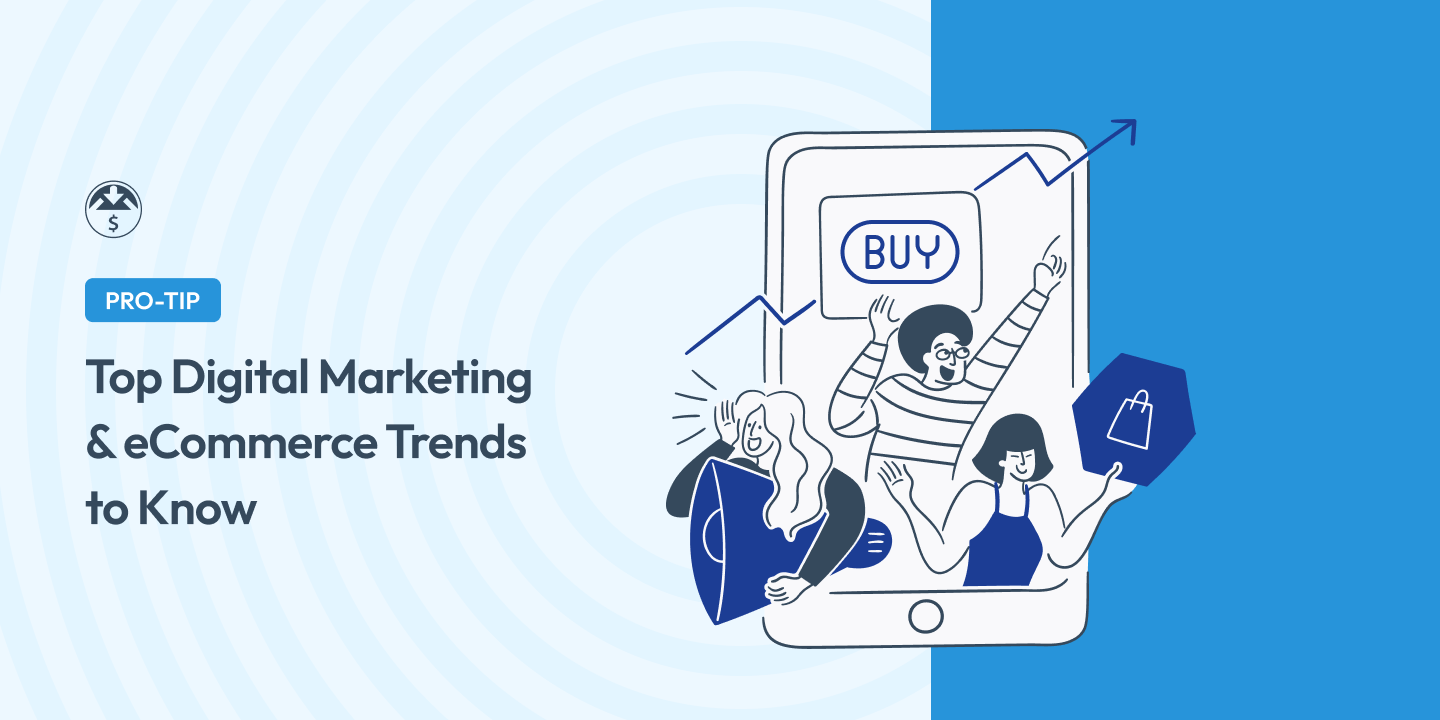E-commerce is no longer a wave of the future—it’s here, reshaping the way we buy and sell every day. For startups looking to carve out their niche in this digital bazaar, knowing the emerging e-commerce trends isn’t just beneficial; it’s essential. In 2024, the e-commerce landscape is charged with innovation, pushing the boundaries of what’s possible in customer experience and technology integration.
E-commerce Trends 2024: What Every Startup Should Know offers deep insight into understanding these trends, from leveraging social commerce to addressing the complexities of supply chains and the evolving mind of the digital consumer.
Understanding the E-commerce Landscape of 2024
Projecting Sales Growth and Consumer Behavior Trends
The e-commerce realm is poised for continuous growth, with an influx of online shoppers each year. Their behavior patterns signal a greater appetite for instant gratification, seamless transactions, and personalized shopping journeys. Startups must adapt to these preferences by delivering frictionless user experiences and curated content that resonates with the consumers’ evolving desires.
The Role of Mobile Commerce
Mobile commerce has transformed from a trend to a cornerstone of e-commerce success. Optimizing for mobile users is non-negotiable; it’s now a hallmark of a forward-thinking brand. Facilitating smooth mobile transactions, ensuring websites are responsive, and leveraging mobile-first strategies are pivotal for capturing the sizable market glued to their smartphones.
The Impact of Social Commerce
Social media is not merely for networking anymore. It’s a burgeoning marketplace where consumers discover and purchase products directly. Integration of sales strategies into social media platforms is proving critical for businesses aiming to enhance visibility and drive engagement in this ever-connected world.
Navigating New Challenges
Adapting to Supply Chain Complexities
The recent shipping crisis has underscored the importance of a resilient supply chain. As detailed by Forbes, blockchain technology can dramatically improve supply chain transparency. Startups must position themselves to combat delivery challenges and rising product prices by leveraging tech innovations like blockchain for greater efficiency and transparency.
Contending with Privacy Issues
Privacy regulations are tightening, and customer acquisition costs are on the rise. Consumer trust is as precious as it is precarious, mandating startups to develop robust privacy policies that protect user data and comply with global standards.
Key Trends Shaping E-commerce
Leveraging Social Commerce
This trend is not just about selling on social networks; it’s about crafting interactive, community-based shopping experiences that resonate with consumers on a personal level. Critical to this narrative is the observation noted by The Future of Commerce that the continued development of new technologies presents ecommerce brands with numerous opportunities to explore and innovate.
Personalization as a Core Strategy
The emphasis on individualized experiences is paramount. Consumers expect brands to understand their unique needs and preferences. Implementing data-driven personalization strategies is key for customer retention and satisfaction.
The Emergence of AR and VR
Augmented Reality (AR) and Virtual Reality (VR) are revolutionizing the online shopping experience by allowing consumers to visualize products in their own space or on their person before making a purchase.
Adopting Omnichannel Approaches
Customers don’t think in channels—they want a seamless experience whether they’re shopping online from a mobile device, a laptop, or in a brick-and-mortar store. An omnichannel approach helps startups ensure consistency across varied customer touchpoints.
Direct-to-Consumer Models
Forging a direct connection with consumers not only eliminates the middleman but also nurtures brand loyalty. Startups that harness this model can gather valuable customer insights and exert greater control over their brand narrative.
Subscription-Based Models
Sustained revenue is the lifeblood of any startup, and subscription-based models promise just that. They create predictable revenue streams and foster long-term customer relationships.
Addressing the Shifting Landscape of Payment Methods
Digital wallets, cryptocurrencies, and BNPL (Buy Now, Pay Later) options are becoming more prevalent. Startups must adapt to these preferences to not lose out on sales due to an inflexible payment infrastructure.

Source: Easy Digital Downloads
Utilizing Technology for a Competitive Edge
The Vital Role of Ecommerce Platforms
An e-commerce platform serves as the backbone of any online retail business. Startups must select platforms that are scalable, secure, and capable of integration with other necessary tech tools.
AI and Machine Learning
From personalized recommendations to automated customer support via chatbots, Artificial Intelligence (AI) and Machine Learning (ML) are integral to delivering superior customer experiences and efficient data analysis.
Big Data Analytics
Big data analytics enables startups to make informed decisions, predict market trends, and fine-tune their strategies to meet consumer demands and stay ahead of the competition.
Preparing for the Future
Staying Agile in Marketing Strategies
The fast pace of the e-commerce sector requires agility in marketing approaches—the importance of diversifying marketing spends cannot be overstated. Startups must remain open to experimenting with new tools and platforms to identify what resonates best with their target audience.
Investing in Customer Experience Innovations
Innovations utilizing AR, VR, and other cutting-edge technologies not only enhance the shopping experience but also set brands apart in a crowded digital space.
Continuous Learning and Adaptation
The e-commerce landscape is dynamic, making continuous learning and adaptation crucial for startups to sustain growth and competitiveness in the years ahead.
Conclusion
Embedding an understanding of current trends into the DNA of your startup will be a game-changer in the e-commerce space. 2024 demands a blend of technology, agility, and customer-centricity, challenging every startup to embrace change and innovate continuously. With a well-informed strategy bolstered by emerging trends, startups have the potential to thrive in a market that’s ripe with possibilities. Adapting, evolving, and anticipating shall be the guiding lights for e-commerce success in this exhilarating journey.





